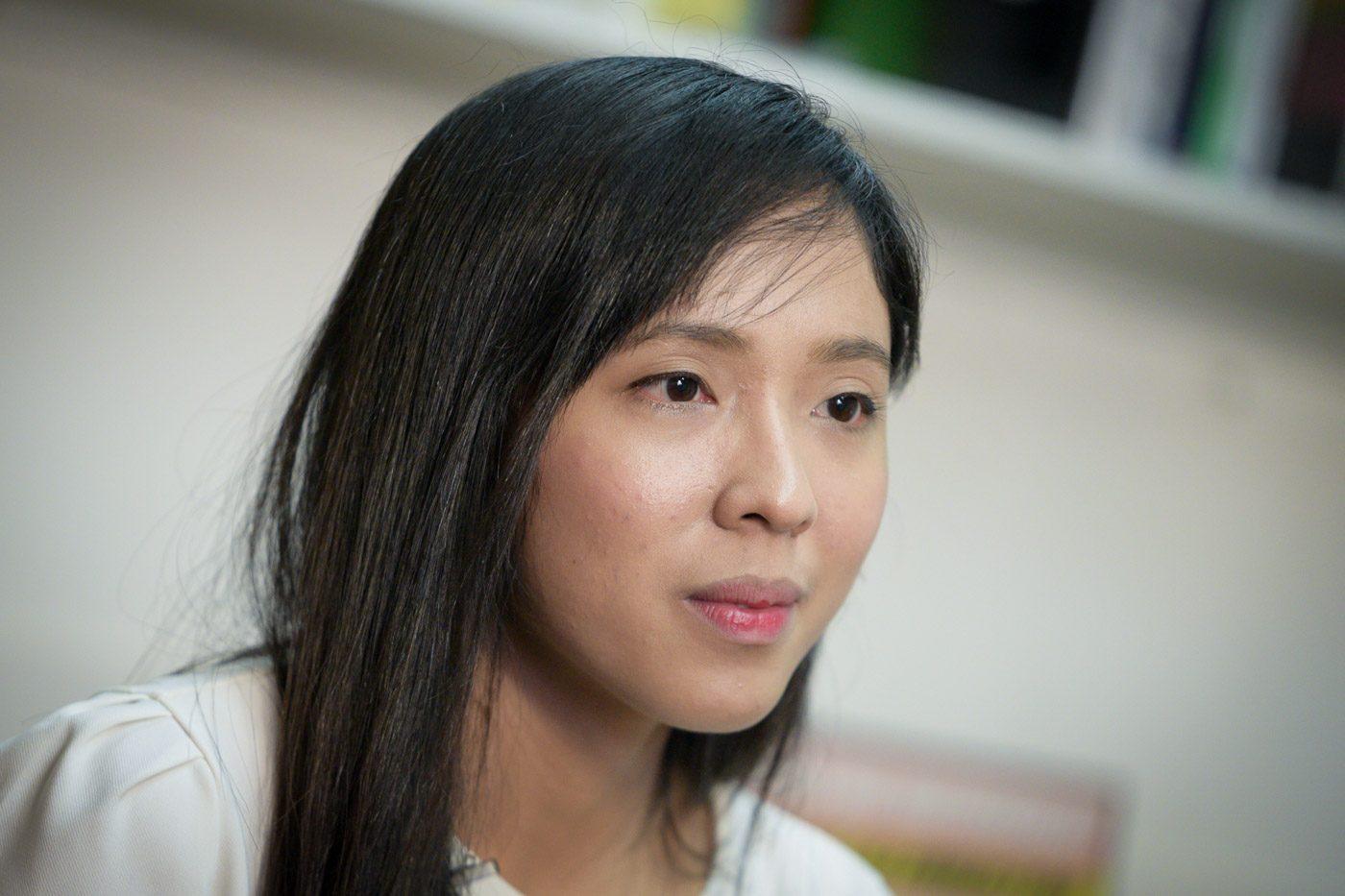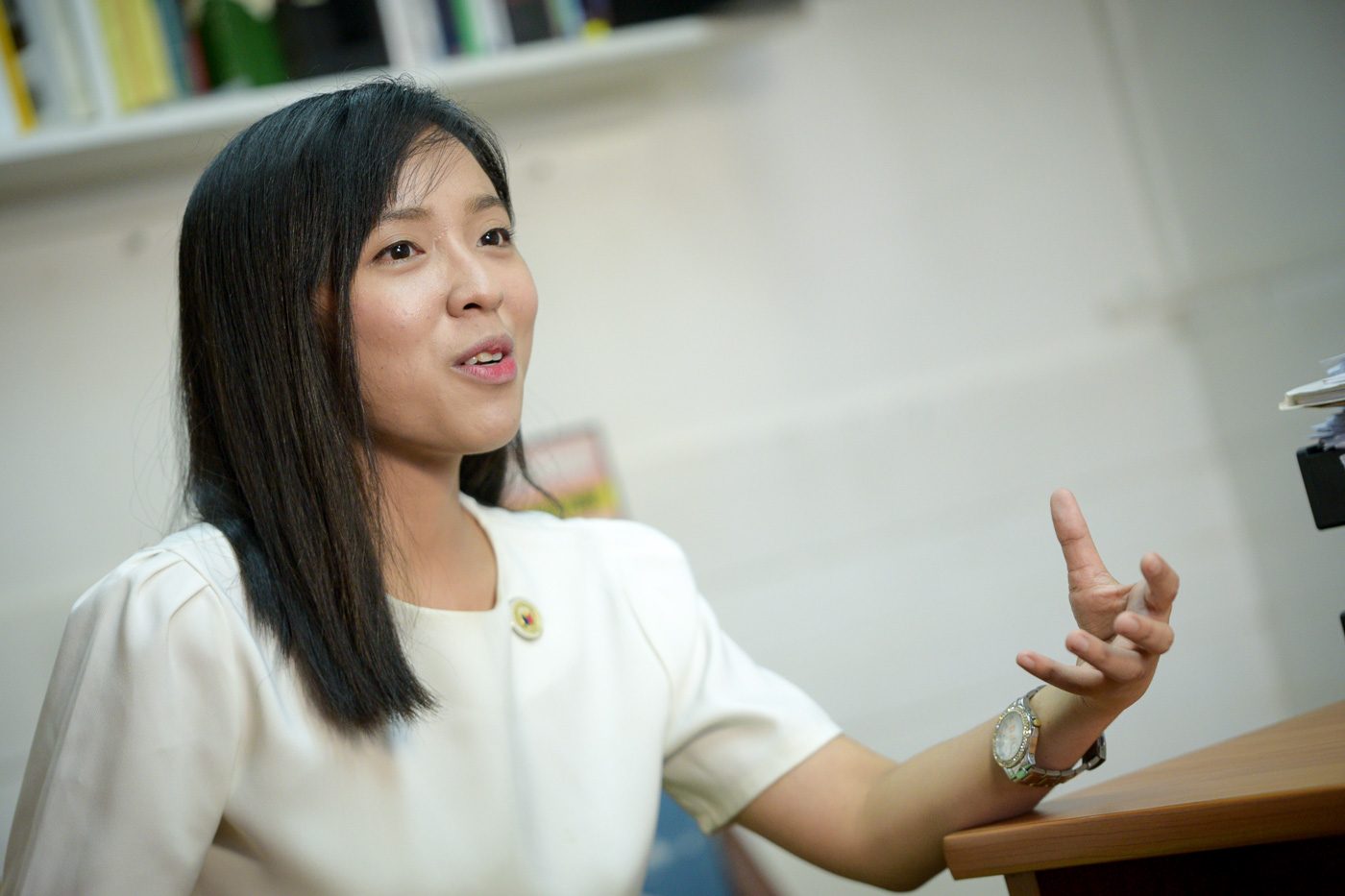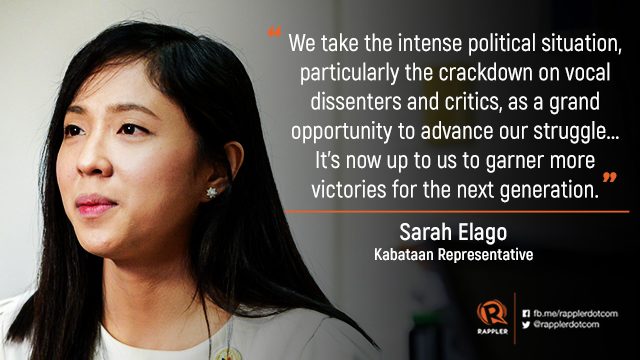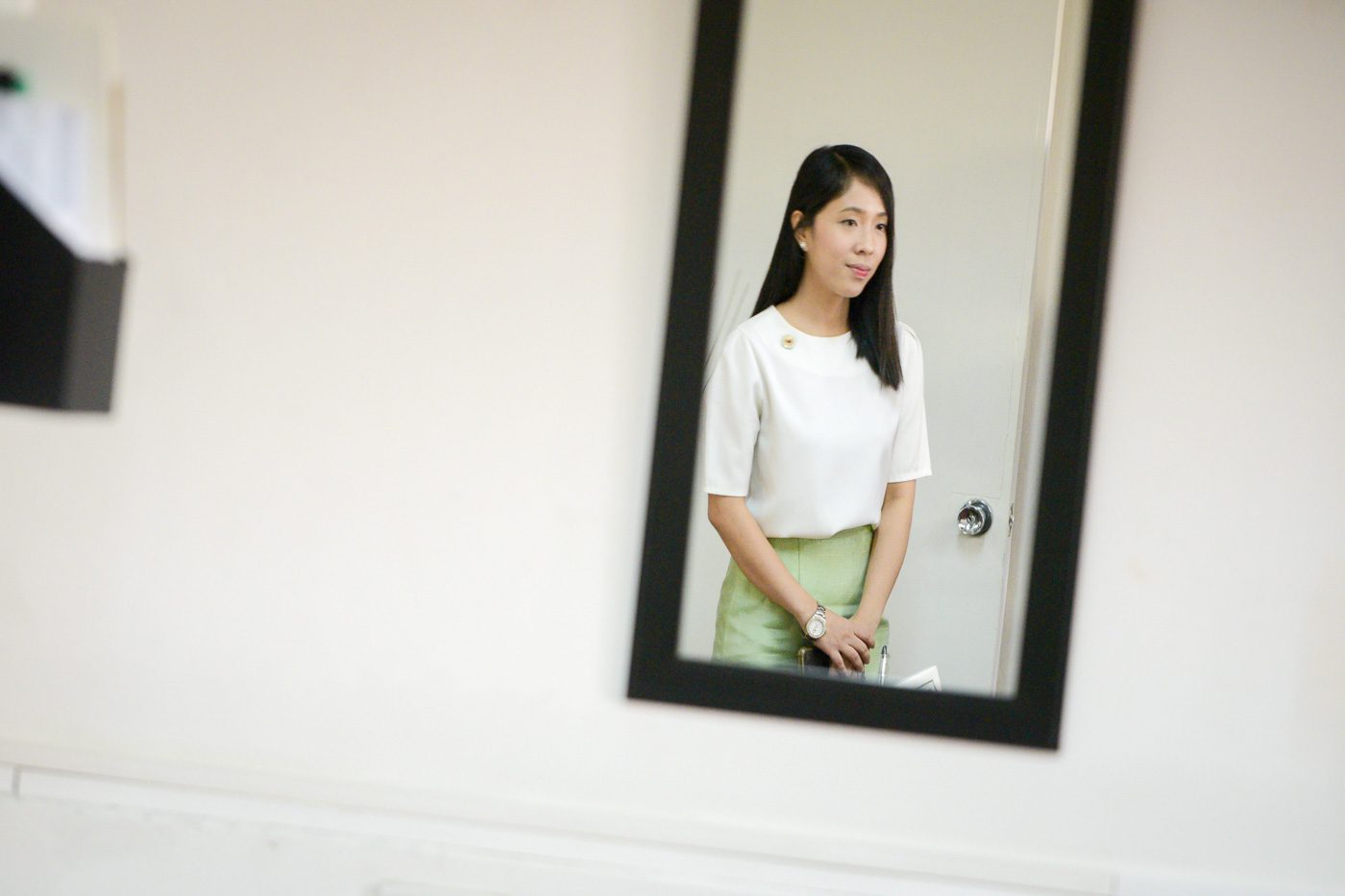SUMMARY
This is AI generated summarization, which may have errors. For context, always refer to the full article.

MANILA, Philippines – Sarah Elago, representative of the Kabataan Partylist, is the youngest member of the 17th Congress. But this does not always show.
During plenary session, in committee hearings, and in protest actions in the streets, she carries herself with confidence, understanding that the things she fights for go beyond herself or any handicaps and privileges that come with being part of the legislature.
“I’m still a full-time activist who just happens to be a congresswoman,” the 27-year-old Elago tells Rappler.

In her first term as a legislator, Elago has proven to be a force to reckon with.
An active member of the progressive Makabayan bloc, Elago is front and center in presscons condemning policies and pronouncements by the administration.
She does not shy away from speaking in a megaphone during protests and gatherings. In the cushy and airconditioned halls of the Batasang Pambansa, Elago does not back down either.
“As a former president of the National Union of Students of the Philippines, I’m not really new to meeting people from the heads of commissions, legislators because we rally as students to lobby for reforms…so this is nothing new for us. Whoever you speak to, that’s what also motivates you to not be afraid, to be clear about what you want to say, to be brave so you’re able to push and make what was impossible, possible,” she says.
Sarah Elago, the youngest representative and a “pauper” in a Congress filled with millionaires, understands that her job is to continue the struggle and defend the victories of generations before hers.
As part of Rappler’s celebration of National Women’s Month, we talk to Elago about the challenges of being a legislator, a woman, a representative of the youth, and a dissenter in the age of Duterte.
Why she ran for a seat in Congress
It’s a collective decision made by the party-list representation. So it was decided by the national organizations who founded the party list. [I decided to accept the nomination because] I know that I’m not alone and I’ll never be alone in this huge responsibility of representing the youth sector, the sole youth representation in the 17th Congress. We have national organizations based in schools and in communities that form the constituency, the solid constituency of Kabataan Partylist.
Even outside the confines of Congress we work to empower, embolden the young people, to speak up in their schools, maximize all spaces to advance our legislative agenda, our call for free education, quality social services, the fight against corruption…the battle against the continued subservience of our country to big, giant economies. That’s not easy, so we draw strength from the unity of the students, of young people from different sectors.
From the streets to Batasang Pambansa
As a former president of the National Union of Students of the Philippines, I’m not really new to meeting people from heads of the Commission on Higher Education, legislators, because we rally as students to lobby for reforms in the education system, also for the defense of democratic rights… of students’ rights in schools. I’m still a full-time activist who just happens to be a congresswoman.
Being an activist and dissenter given President Rodrigo Duterte’s pronouncements
We take the intense political situation, particularly the crackdown on vocal dissenters and critics as a grand opportunity to advance our struggle because right now we are seeing more people, more organizations offering different sectors, speaking up against human rights violations, against attacks on the critics, against the elimination of all opposition.
It only goes to show that as the campaigns for rights, freedom, and democracy intensify, the attacks also intensify. So we now have a greater push to, in the words of the youth today, do it better.
This is also the effort of the young people to secure the victories won by the young people before us. So they had their victories then. It’s now up to us to garner more victories for the next generation.

Navigating the politics of a male-dominated House
Like they say: I’m not just a woman, but a young woman. But I think that fighting for the rights and welfare of the sector you represent knows no gender nor age. That should not be the first thing people think about. And because I come from the Kabataan Partylist, which has a long history of bravery, no matter who represents it, we don’t let any form of discrimination affect us.
Even if it’s there, we disregard it because what we’re fighting for is more important. If you feel that they belittle you because you are young or because you are a woman, you can use that to your advantage. I’m also thankful for the respect that we get from colleagues here in Congress.
We forge unities based on principles – not because you are a woman or you are young – but because of the principles that you want to push, the steps you want to take, the measures you’re pushing here in Congress. And that’s what we want to continue doing.
Best and worst parts of being in Congress
The best part is how we are able to maximize the seat that we have here in the House of Representatives, to buttress and bolster the young and student movement nationwide.
So whatever campaigns they have on education, social services, governance, for accountability, our office is a mere extension. So whatever they support they need, we will give. Do they need a resolution filed, a bill filed? Do they need an issue to be the subject of a privilege speech? We will do that. So that’s the best part of being in Congress.

The dangers of misinformation and demonizing dissenters
The worst, and to me, the most dangerous, is when legitimate dissenters and vocal critics are tagged as terrorists. Right now, we know the heightened campaign of the administration against terrorism and this has been used frequently as an excuse to attack the opposition so it legitimizes violence, violent attacks, abuse against critics.
The noble cause is to represent the marginalized and the oppressed. Our bias really is for those who are under-represented. To give voice to the voiceless…to help those who are marginalized because how else would it be, right? It’s an effort to silence everyone who wants to speak. We speak because we want that bright future. We should not stay silent, especially now because we need many voices, loud voices.
Facing the fear of threats
I think the greatest assurance is the overwhelming support of the young people, the students, and the receptors, the peasants, the fisherfolk from the ranks of the urban poor. And then you see them supporting you, they who are the poorest, farmers who have nothing to eat, workers who do not get their wages. You see them fight, so why wouldn’t you, right?
They have nothing and yet choose to speak up. What more for those in the ranks of say, scholars of the University of the Philippines like me who were shaped by the call to serve the country?
To me, a woman is…
To me, a woman is a fighter.
– Rappler.com
Add a comment
How does this make you feel?
There are no comments yet. Add your comment to start the conversation.